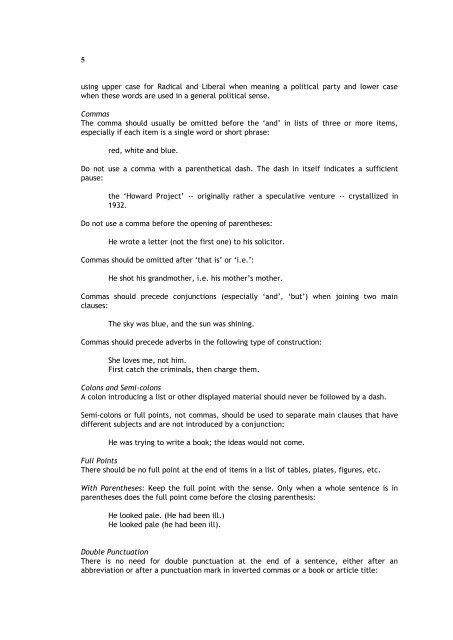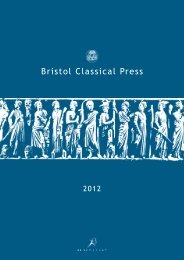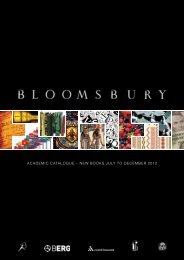Bloomsbury Academic | House Style Guidelines for Authors
Bloomsbury Academic | House Style Guidelines for Authors
Bloomsbury Academic | House Style Guidelines for Authors
You also want an ePaper? Increase the reach of your titles
YUMPU automatically turns print PDFs into web optimized ePapers that Google loves.
5using upper case <strong>for</strong> Radical and Liberal when meaning a political party and lower casewhen these words are used in a general political sense.CommasThe comma should usually be omitted be<strong>for</strong>e the „and‟ in lists of three or more items,especially if each item is a single word or short phrase:red, white and blue.Do not use a comma with a parenthetical dash. The dash in itself indicates a sufficientpause:the „Howard Project‟ -- originally rather a speculative venture -- crystallized in1932.Do not use a comma be<strong>for</strong>e the opening of parentheses:He wrote a letter (not the first one) to his solicitor.Commas should be omitted after „that is‟ or „i.e.‟:He shot his grandmother, i.e. his mother‟s mother.Commas should precede conjunctions (especially „and‟, „but‟) when joining two mainclauses:The sky was blue, and the sun was shining.Commas should precede adverbs in the following type of construction:She loves me, not him.First catch the criminals, then charge them.Colons and Semi-colonsA colon introducing a list or other displayed material should never be followed by a dash.Semi-colons or full points, not commas, should be used to separate main clauses that havedifferent subjects and are not introduced by a conjunction:He was trying to write a book; the ideas would not come.Full PointsThere should be no full point at the end of items in a list of tables, plates, figures, etc.With Parentheses: Keep the full point with the sense. Only when a whole sentence is inparentheses does the full point come be<strong>for</strong>e the closing parenthesis:He looked pale. (He had been ill.)He looked pale (he had been ill).Double PunctuationThere is no need <strong>for</strong> double punctuation at the end of a sentence, either after anabbreviation or after a punctuation mark in inverted commas or a book or article title:




